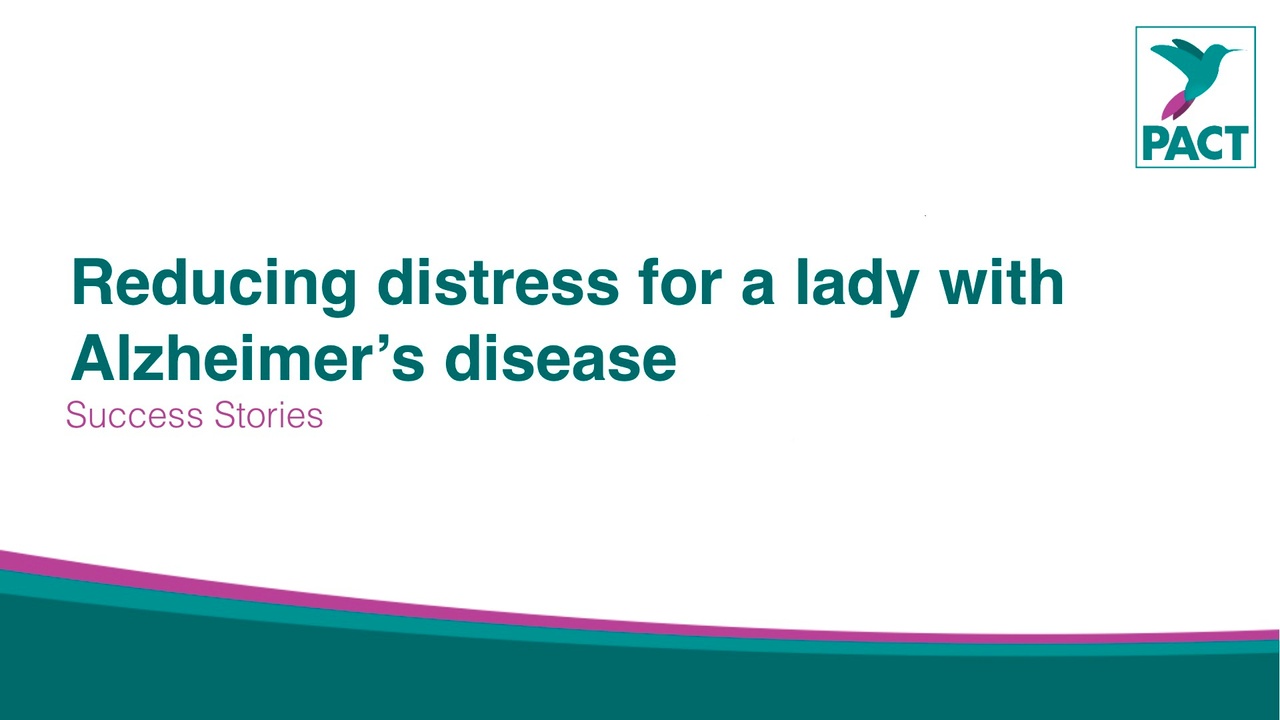Success Stories: Reducing distress for a lady with Alzheimer's disease
Aug 13, 2021
We often get asked to help people who have dementia and who become distressed during personal care. Experiencing difficulties during personal care can be very common for people that have dementia, and can be difficult for both them and their caregivers too. Finding a way to make personal care routines not only tolerable but even potentially enjoyable is something that is key to providing best practice individualised care. Because every person is different and has had different life experiences, we use an individualised approach for all our clients, and design every intervention to suit each person’s completely unique needs.
I was asked to work with a lady called Mrs S, who was 82 years old, had a diagnosis of Alzheimer’s disease and lived in a care home. Mrs S had started to become distressed when she was asked to take part in personal care, which was upsetting for both her, and her carers and impacted her quality of life. I completed a fully individualised assessment with Mrs S to find a way to make personal care something less distressing for her.
To start the assessment, I quietly carried out some observations over a few days to get an understanding of the behaviours, and the events that happened leading up to, during, and after personal care. This assessment began to indicate that the manner in which Mrs S was spoken to could make all the difference to her experience of the situation. To understand more thoroughly, we systematically evaluated different ways to speak to Mrs S while doing an activity she really enjoyed, which was colouring. While we did the activity together, I asked Mrs S to do some simple tasks (such as passing a pencil), but I worded them in slightly different ways each time, and then recorded Mrs S’s reactions to each phrase I asked her. I was able to do this a few times over multiple days, and I always asked her when she was content and relaxed.
Rather than be instructed to do something, Mrs S preferred to be asked for her help in carrying out the task, and to be given a choice about how it was carried out. For example, instead of saying ‘Mrs S, it's time for your wash now’, staff should ask ‘Mrs S, I really need your help getting the bath ready, would it be better if we filled it and put the bubbles in now, or shall we put the bubbles in after it's full?’ After discovering that this change in communicate was the key to supporting Mrs S in a way that upheld her dignity, the staff began to use this style of phrasing in everyday interactions with her and during personal care. Because of this, there was a huge decrease in how distressed Mrs S was, and she was much happier and willing to take part in the things she was asked to do.
The detailed and fully individual assessment showed us exactly what was meaningful for Mrs S. What worked for her would not work for someone else, and this individualised assessment and intervention is at the heart of what we do here at PACT. Providing behavioural support in this way means that our client’s quality of life is massively improved through understanding their individual context, the carers can support them more easily and with less distress, and dignity and compassion is maintained at the forefront of care.
If you are interested in speaking to us about a fully individualised assessment and intervention for an older adult with dementia, please get in contact with us.
We are passionate about sharing innovation in supporting older adults with the scientific community. This piece of work was completed by PACT consultant Emma Williams during her masters degree clinical placement, was peer reviewed and published (with consent from all relevant parties) in a scientific journal called Behavior Analysis in Practice. If you are interested in reading the article, you can find it here.

